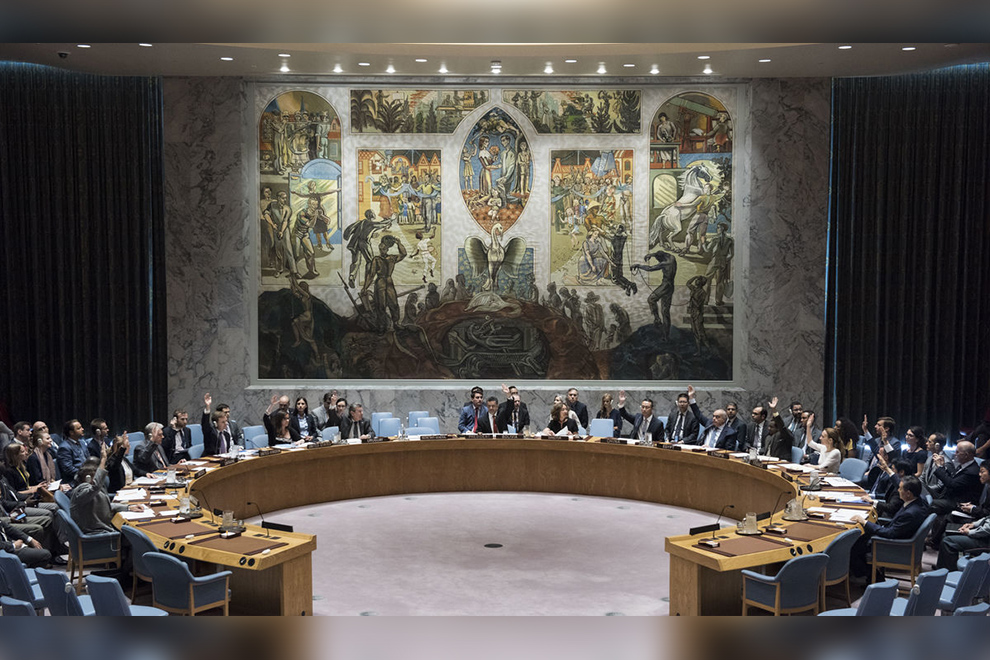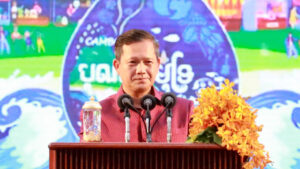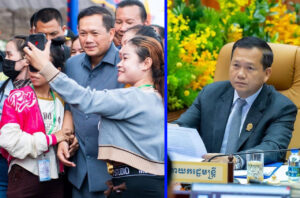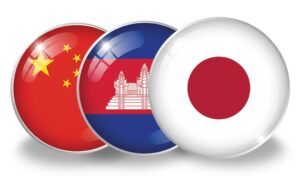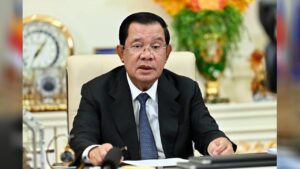Opinion: Cambodia’s Strategic Compass: Navigating Peace Amid Border Dangerous Escalation
At Cambodia’s request, the UN Security Council met this morning to discuss the ongoing border crisis. Supplied
The Phnom Penh Post | Dear Esteemed Cambodian Diplomatic and Legal Teams,
As a Cambodian student of international relations and political science, I humbly address you at this urgent hour on Saturday, July 26, following the UN Security Council (UNSC) emergency meeting on July 25, and Thailand’s alarming escalation of military operations against our nation.
Cambodia’s request for the UNSC’s attention, amidst global crises, showcased our unwavering commitment to peace and international law. The closed-door session, where our representatives confronted Thailand’s, provided a vital platform to assert our sovereignty and demand de-escalation. Yet, Thailand’s rejection of ASEAN chair Anwar Ibrahim’s ceasefire proposal, their insistence on bilateral talks, and their aggressive expansion — they are preparing to launch naval assaults in Trat and artillery attacks on Pursat — signal a dangerous escalation beyond contested temple areas. As a student inspired by our nation’s resilience, I urge us to leverage solid evidence, build on our diplomatic gains and counter Thailand’s tactics to cement Cambodia’s role as a principled leader, advancing our pursuit of justice and enduring harmony.
Countering Thailand’s Aggression with Satellite Evidence
The July 25 UNSC meeting amplified Cambodia’s call for peace, but Thailand’s actions have intensified, spreading conflict to Trat’s coastal regions and Pursat province. On July 26, the Thai Navy’s “Operation Trat Pikhart Pairee 1” targeted our forces in Pursat, while our defence ministry reported Thai artillery fire at 5.02am, endangering civilians. Thailand’s retraction of Anwar Ibrahim’s ceasefire proposal — despite their initial agreement — underscores their intent to avoid international scrutiny. We must counter their narrative of Cambodian aggression by acquiring high-resolution satellite imageries, capable of capturing Thailand’s naval and artillery operations. Our data team must compile imagery, witness testimonies and military reports to document violations, ensuring compliance with international humanitarian law. By engaging Pakistan, the UNSC president, we must demand renewed council attention to these new fronts, framing Thailand’s actions as a grave threat to ASEAN unity and regional stability, and reinforcing Cambodia’s commitment to peace.
Pursuing Justice Through the ICJ
The UNSC’s authority to refer disputes to the International Court of Justice (ICJ) remains a powerful tool, especially as Thailand escalates in non-traditional conflict zones. Our success in the 1962 Preah Vihear Temple ruling positions us favourably for an ICJ referral to address Thailand’s claims. We must prepare a robust legal case, using satellite imagery to substantiate our territorial sovereignty, leveraging historical precedents and precise documentation. By advocating for a UNSC resolution endorsing judicial review, we can distinguish Cambodia’s faith in international law from Thailand’s reliance on force.
Strengthening Geopolitical Alliances
The UNSC’s composition — permanent members (China, France, Russia, the UK and the US) and rotating members (Algeria, Guyana, South Korea, Sierra Leone and Slovenia through 2025; Denmark, Greece, Pakistan, Panama and Somalia through 2026) — requires deft diplomacy.
The July 25 meeting’s call for de-escalation, supported by all 15 members, highlights the need to deepen ties with friendly countries like China, Russia, Pakistan and Somalia. Sustained bilateral engagements are critical to secure support for UNSC actions addressing Thailand’s air, naval and artillery operations. Thailand may lobby neutral members like Denmark, Greece or Panama, alleging Cambodian provocations. We must pre-empt this with satellite-backed briefings exposing Thailand’s attacks as breaches of international norms such as their F-16 and long-range artillery strikes on civilian targets like temples, pagodas and schools, appealing to these members’ commitment to regional peace and ASEAN’s non-interference principles.
Dominating the Narrative Through Strategic Communication
Thai military and diplomatic efforts aim to portray Cambodia as the aggressor. We must counter this by sustaining a robust communication strategy, leveraging commercial satellite imagery from providers to document Thai operations in real-time. Our data team must deliver evidence to the UNSC, international media and platforms like X, using imagery and testimonies to expose attacks on Pursat and coastal provocations near Koh Kong. If Thailand highlights defensive measures like landmines, we must clarify their legality as responses to Thai aggression, ensuring transparency. A permanent task force, coordinating with ASEAN and the UN, must monitor Thai actions and maintain our narrative’s prominence, sustaining pressure for dialogue.
Advancing Dialogue Amid Thailand’s Rejection
The UN Secretary-General’s call for dialogue, echoed during the July 25 meeting, offers a platform to showcase Cambodia’s statesmanship. Thailand’s rejection of ASEAN mediation reflects their strategy to avoid international accountability. We must reaffirm our commitment to dialogue, urging Thailand to halt its aggression as a prerequisite for negotiations. Proposing talks under UN or ASEAN auspices will position Cambodia as a leader in de-escalation. Thailand’s accusations of Cambodian attacks must be challenged with satellite imagery and third-party verification, maintaining our credibility and focusing on Thailand’s accountability.
Forging a Unified Path Forward
The July 25 UNSC meeting was a milestone, but Thailand’s escalation signals a protracted struggle. Cambodia must present a united front, with every representative speaking as one. We must rally ASEAN and other friends to pressure Thailand, particularly in response to their imminent naval operations. Engaging global audiences through X and international media will amplify Cambodia’s commitment to peace, countering Thai narratives. With no UNSC resolution, we must prepare for follow-up sessions, using satellite imagery to strengthen our case. By wielding evidence, strategic diplomacy, and a commitment to international law, Cambodia can transform this crisis into a triumph, securing our sovereignty and earning global respect.
Cambodia stands at a critical juncture. As a student inspired by our nation’s resilience, I urge us to move forward with courage, guided by justice and unity, to ensure our voice resonates far beyond the UNSC chamber.
Cheth Borisoth is a student at the Institute for International Studies and Public Policy at the Royal University of Phnom Penh. The views and opinions expressed are his own.

